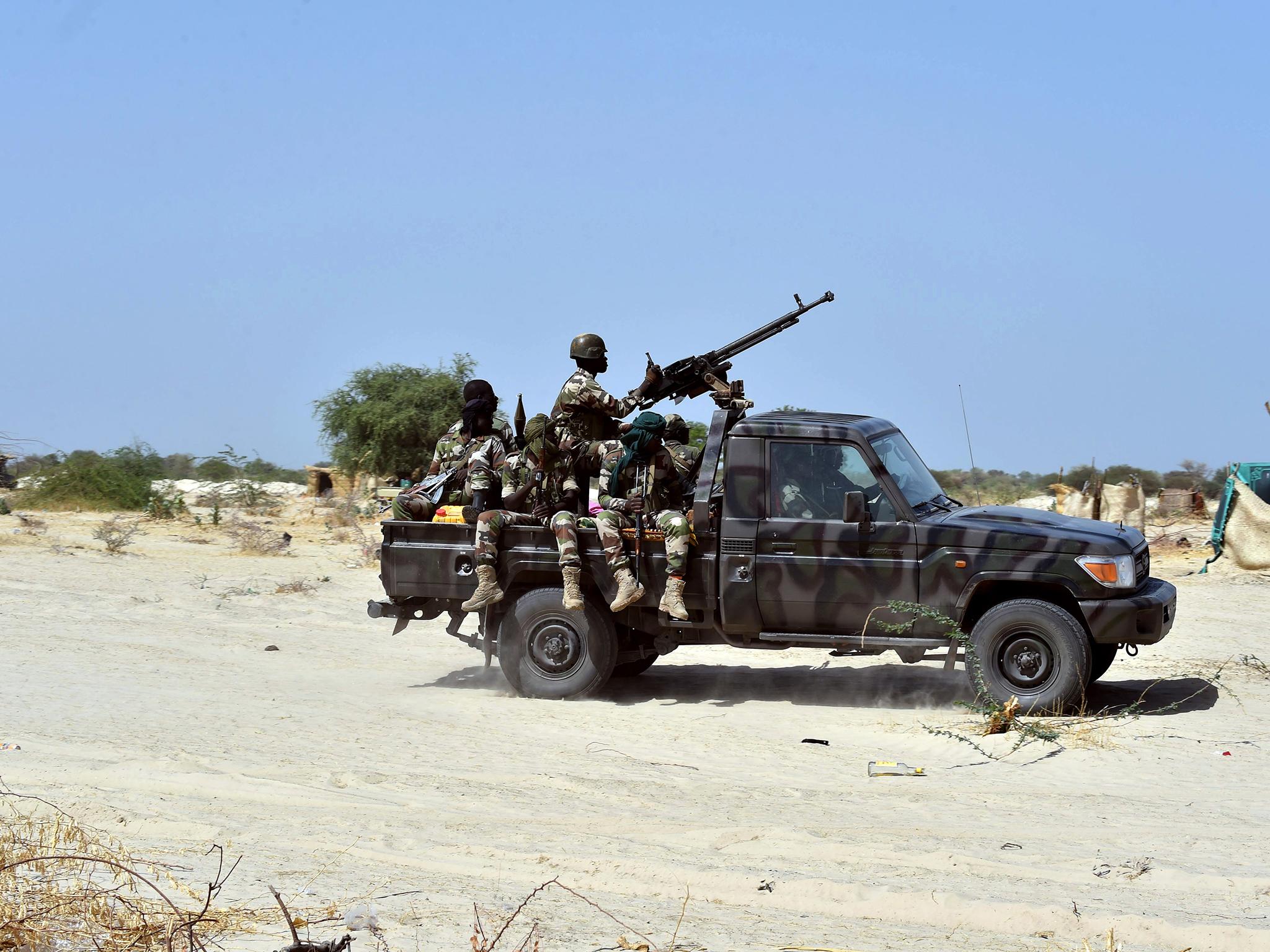Thanks to coronavirus, Boko Haram is making a comeback
The group is capitalising on the chaos generated by the pandemic, write Bulama Bukarti and David Crone. The countries surrounding Lake Chad must balance their priorities

For more than a decade, Boko Haram fighters have terrorised civilians and exchanged fire with soldiers around Lake Chad, where the borders of Nigeria, Niger, Cameroon and Chad meet. They have killed an estimated 30,000 people and displaced two and a half million. This week marks six years since the infamous kidnap of nearly three hundred schoolgirls from the town of Chibok that propelled the group to international notoriety. And now, a mere month after the conclusion of a multinational operation against the militants, and as west African governments mobilise their military forces in response to Covid-19, Boko Haram has launched unprecedentedly ambitious and effective offensives on military targets.
In separate attacks across two countries on the same day in March, using looted rocket-propelled weaponry, trucks and speedboats, Boko Haram inflicted military casualties on a scale never before conceded by Nigeria and Chad. With the death of nearly 100 soldiers, Chad suffered the worst defeat in the nation’s history, as Niger did during an attack by an ISIS-allied faction of Boko Haram in December. Though it has been under territorial pressure and has suffered splits since the peak of its violence in 2015, this latest flurry of combat proves the threat Boko Haram poses to security and stability in a region already afflicted by poverty and climate change is still very real.
Large-scale retaliatory operations followed, including one personally coordinated on the ground by President Idriss Déby of Chad. More than 1,000 Boko Haram fighters are said to have been killed, and five of their bases destroyed. But though these nations would ordinarily be consolidating the gains made, they now face the dilemma of fighting jihadists and simultaneously responding to Covid-19 whose numbers are rising steadily in West Africa.
Nigeria, like many African countries, has responded to the pandemic with a tough lockdown – having neither the public health nor economic resources to adopt Western-style approaches. Militaries will face mounting and competing pressures as they are called upon to help enforce lockdowns, maintain public order and distribute supplies. Chad and Niger, for whom Boko Haram is just one of a number of Islamist groups they are fighting on opposite ends of their respective territories, may see especially scarce military resources stretched even further. Meanwhile, troops on the frontline will find it hard, if not impossible, to effectively observe social distancing and personal hygiene guidelines. While Nigeria’s Chief of Army Staff has relocated to the country’s north east and has vowed not to leave until Boko Haram is defeated, in the context of Covid-19, his expertise will be sorely missed at central command in Abuja. As domestic need and economic pain causes western militaries to re-evaluate the size of their deployments in Africa, in both the short and long term, valuable capacity building exercises may be scaled down and the multilateral response to the Lake Chad conflict imperilled.
Boko Haram is undeterred by Covid-19, its leader recently releasing a recording in which he said the virus is God’s punishment of sin. History has shown us the group is capable of weathering storms and bouncing back. In dealing with the virus, many nations are turning inward, and the security relationships between the Lake Chad countries are already fragile. Without continued collaboration in the region, the group will take advantage of the dense forestry, marshy landscape and porous borders around Lake Chad, and the gaps between each country’s response, to regroup and re-energise. The havoc this virus will cause will enable Boko Haram to more easily recruit from among the disaffected and disadvantaged young, replenishing the fighters it has lost.
If governments do not balance their resources, they may spread them so thinly that neither their response to the pandemic nor to Boko Haram will be effective.
Bulama Bukarti is an analyst and David Crone a policy researcher at the Tony Blair Institute for Global Change.
Join our commenting forum
Join thought-provoking conversations, follow other Independent readers and see their replies
Comments